May 2, 2024 | 11:20 GMT +7
May 2, 2024 | 11:20 GMT +7
Hotline: 0913.378.918
May 2, 2024 | 11:20 GMT +7
Hotline: 0913.378.918
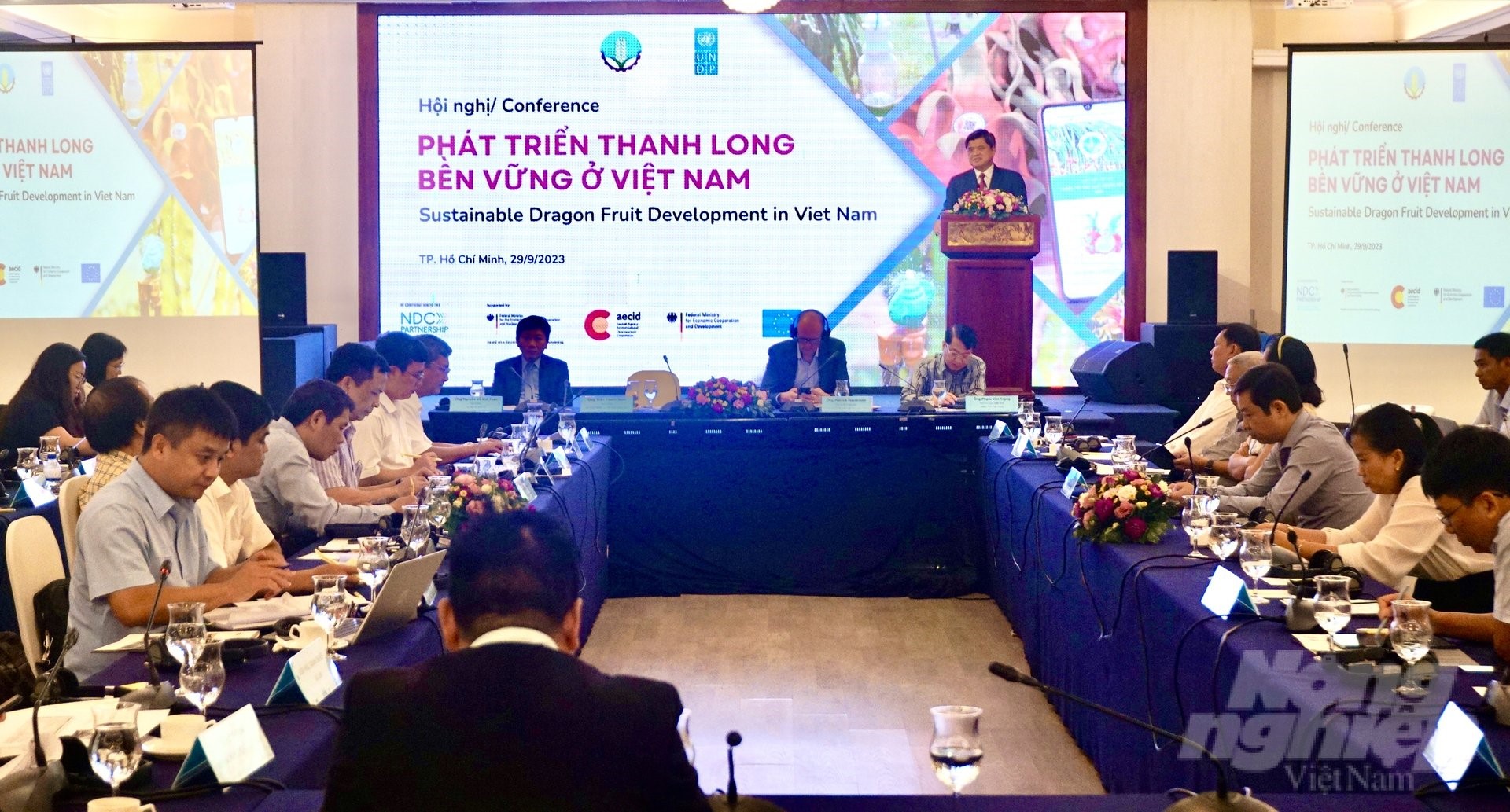
Conference "Sustainable Dragon Fruit Development in Vietnam". Photo: Nguyen Thuy.
The conference was jointly organized by the Ministry of Agriculture and Rural Development (MARD) and the United Nations Development Programme (UNDP). This is a program within the framework of the project “Accelerating private sector engagement in climate-resilient and low-emission investment opportunities in Vietnam’s NDC.”
Speaking at the opening of the conference, Deputy Minister of Agriculture and Rural Development Tran Thanh Nam said that the issue of green economy, emission reduction, and sustainable development is a topic about which the Vietnamese Government, Ministries, branches, and international organizations are deeply concerned.
According to Deputy Minister Tran Thanh Nam, dragon fruit is one of Vietnam's key commodities, with an area of about 55,000 hectares, an output of about 1.3 million tons/year, and an annual export turnover of over USD 1 billion.
"This is a huge advantage concentrated in Binh Thuan, Long An, Tien Giang, and some small areas in some other localities. Therefore, the current problem is to improve the quality, value, and efficiency of dragon fruit to create a sustainable legal corridor for development. The question is how to implement the process to ensure product quality and brand value," asked Deputy Minister Tran Thanh Nam.
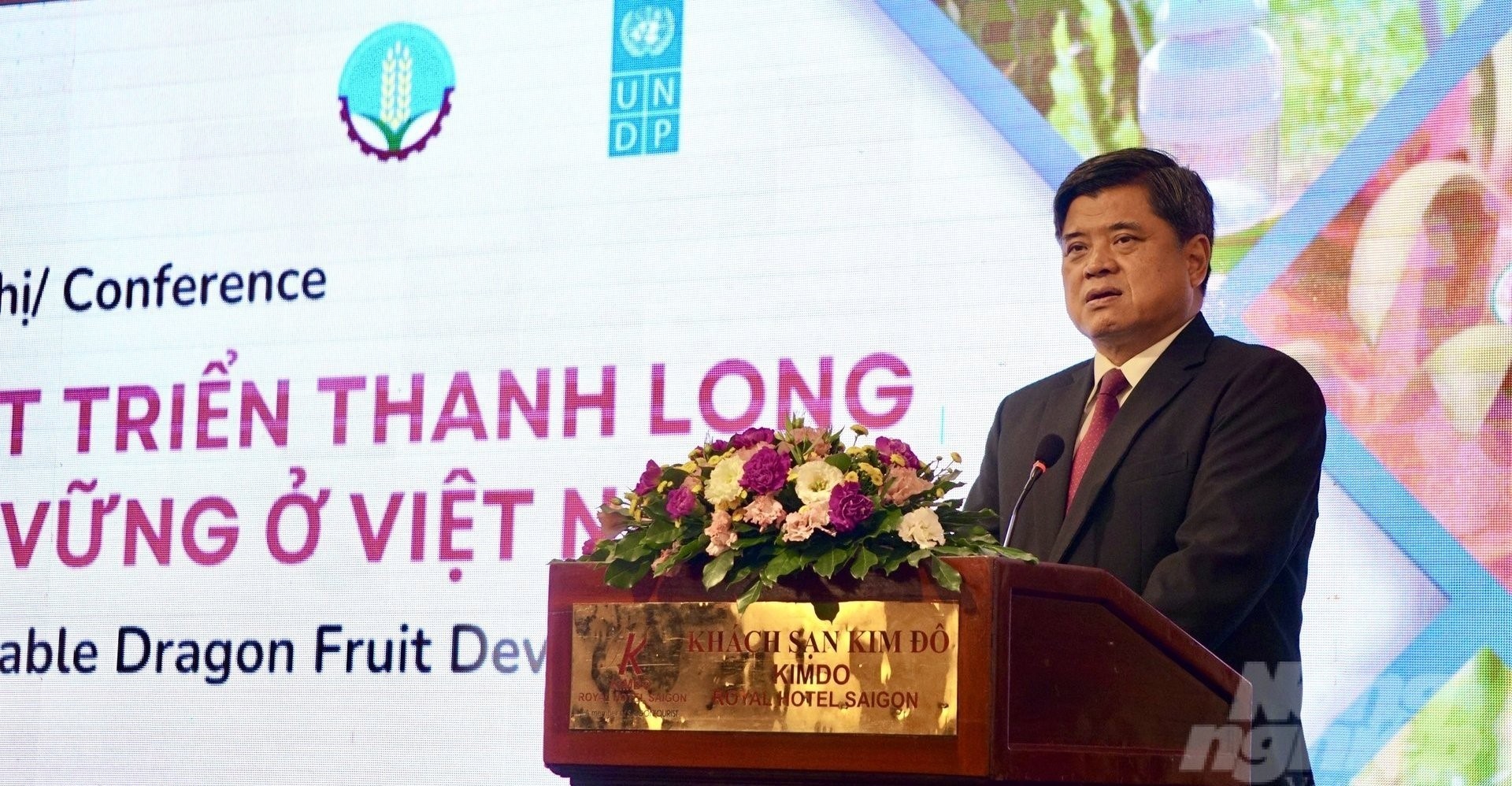
Deputy Minister of Agriculture and Rural Development Tran Thanh Nam. Photo: Nguyen Thuy.
Deputy Minister Tran Thanh Nam said that in order to develop a sustainable dragon fruit industry, the first thing is to implement safe production processes with emission reduction and improve the product quality and value. Therefore, the Deputy Minister proposed that the conference focus on discussion to possibly implement models of organic agriculture and circular agriculture that reduce emissions while still ensuring product quality and value.
Second, dragon fruit production must be reorganized according to the linkage chain. “Despite good seeds and fruits, if the production is not good, it will be ineffective and not add value. Dragon fruit has good quality, but without a high selling price, no one will grow it,” said the Deputy Minister.
Third, it is necessary to focus on connecting the market supply chain, ensuring food safety, and ensuring added value.
"Those are three issues and the basic framework to build a dragon fruit region with sustainable development in Vietnam," Deputy Minister Tran Thanh Nam affirmed and added that MARD has just submitted to the Government a project to build an agro-product supply value chain until 2030–2050. Therefore, the current urgent problem is to have large raw material areas, ensuring the supply of input and output throughout the supply chain.
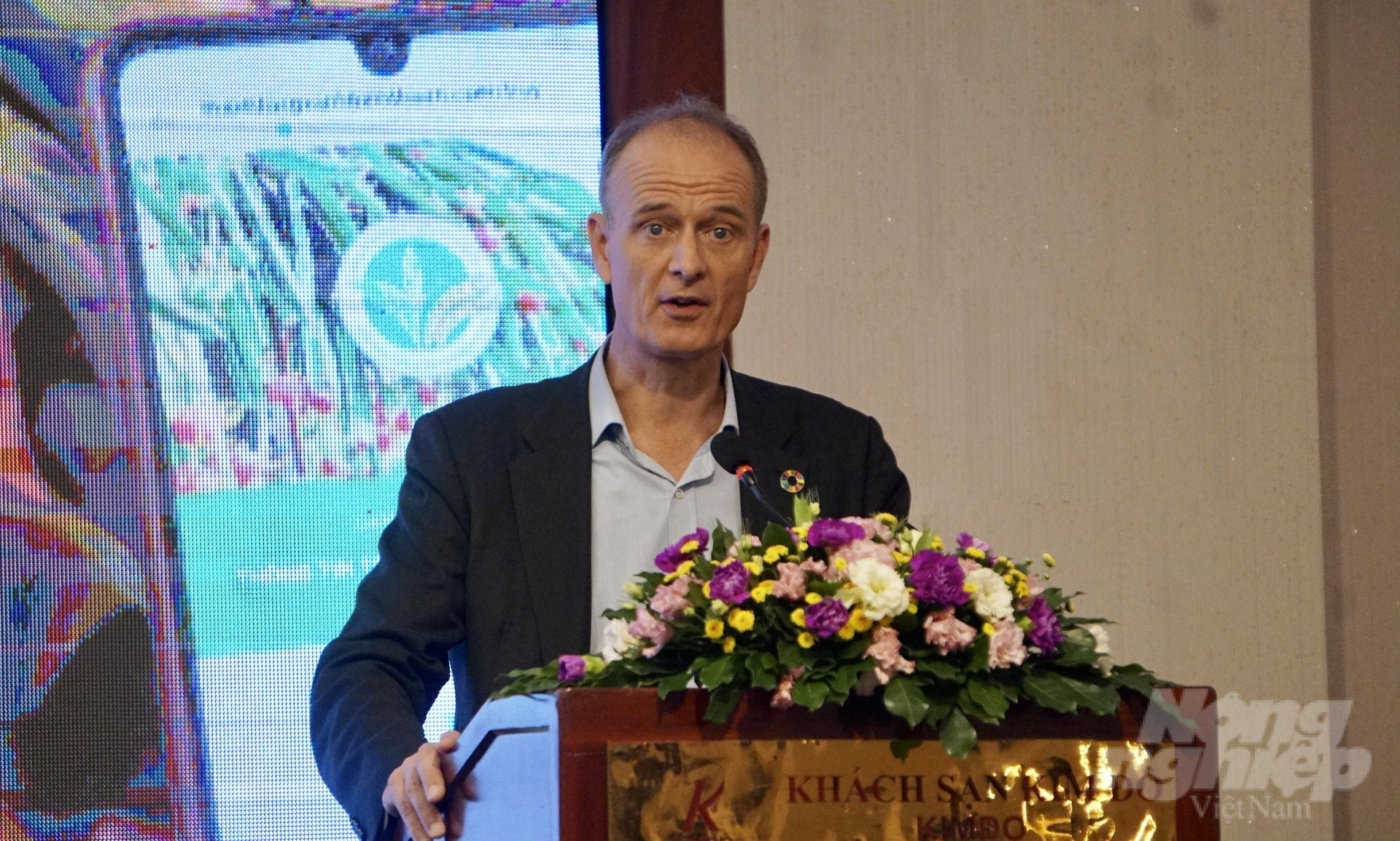
Mr. Patrick Haverman, Deputy Resident Representative of UNDP Vietnam. Photo: Nguyen Thuy.
According to Mr. Patrick Haverman, Deputy Resident Representative of UNDP Vietnam, UNDP has supported the green transformation program so that the dragon fruit chain has become a green value chain since 2020. Many dragon fruit producers and cooperatives have adopted and implemented green production programs, resulting in higher-quality dragon fruit products.
"Currently, we have an irrigation process and a process using flower lighting measures with the use of LED lights to save energy, as well as many new techniques being used and applied. Many manufacturers are also paying attention to implementing electronic traceability programs to increase the value of dragon fruit when commercially marketed," Mr. Patrick Haverman said, adding that many dragon fruit products with QR codes and many models of sustainable and green dragon fruit production are a great thing.
Mr. Patrick Haverman affirmed that UNDP wants to expand common practices and methods of sustainable and green dragon fruit production with emission reduction and climate change adaptation in the main production areas of Vietnamese dragon fruit, thereby also helping the dragon fruit industry participate in the global value chain.
According to the Deputy Resident Representative of UNDP Vietnam, to develop dragon fruit sustainably, Vietnam needs to balance dragon fruit production areas in Vietnam and focus on quality rather than output or quantity. It is necessary to maintain the level of concentrated production, and it is possible to apply farming measures that meet GAP standards and adapt to climate change.
In addition, Vietnam also needs to shift to a market-oriented production mindset and establish specialized dragon fruit production areas in accordance with export needs in its main markets. At the same time, it is necessary to develop green production that is resilient to climate change.
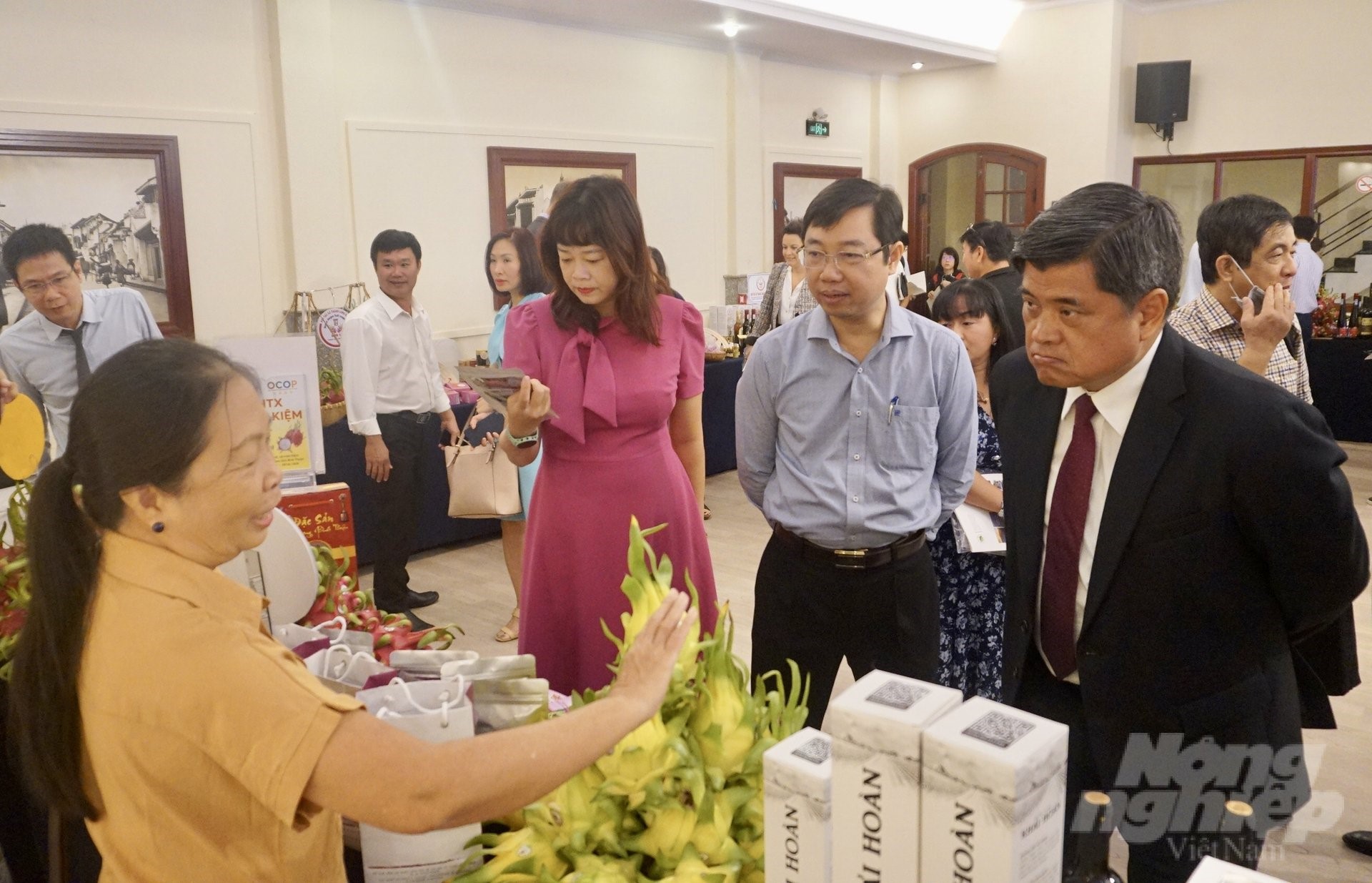
Ms. Le Phuong Chi, Director of Ham Minh 30 Dragon Fruit Production Service Cooperative (Binh Thuan), introduced products to Deputy Minister Tran Thanh Nam at the conference. Photo: Nguyen Thuy.
"Dragon fruit producers need to have certifications on good production and common practices; apply electronic traceability systems; have important public-private partnerships to upgrade linkage in the value chain from producers, processors, and exporters; and jointly build a complete logistics function base to support the dragon fruit industry.
According to Mr. Patrick Haverman, based on several studies, 4 out of 5 consumers in Europe, when buying food, want to see agro-products labeled with reduced emissions. Therefore, implementing production measures to reduce emissions, minimize production costs, enhance product quality and safety, and enhance the economic value of products throughout the chain is essential and needs to be implemented now.
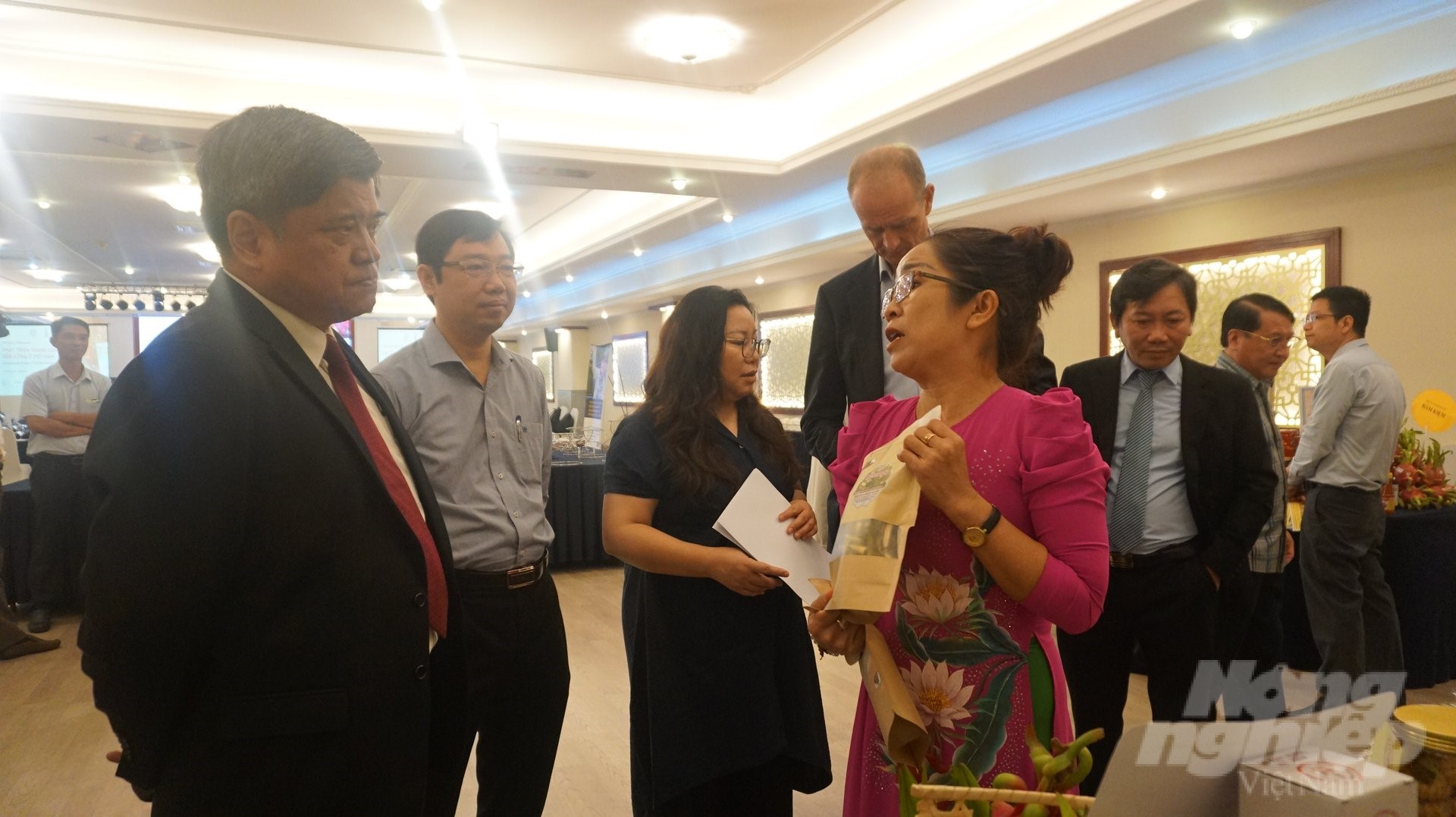
Representatives of Hoa Le Clean Dragon Fruit Cooperative introduced products made from dragon fruit to Deputy Minister Tran Thanh Nam. Photo: Nguyen Thuy.
"UNDP is proud to join the Ministry of Agriculture and Rural Development in introducing methodologies and electronic methods to monitor emissions from the supply chain of the dragon fruit industry. This is the first time we have a system to track carbon emission reduction throughout the chain, from producers to consumers.
This is a very important tool for producers in Vietnam and Vietnamese companies to monitor the level of emissions at each different stage in the production chain, thereby possibly meeting the strict requirements of demanding markets and highly developed markets that require low-carbon production and products," said Mr. Patrick Haverman.
The conference also focused on exchanging the world's best common practices in dragon fruit trade as well as good methods and standards for green, sustainable dragon fruit production to find new ideas to help increase the value of the dragon fruit chain in Vietnam.
Translated by Huyen Vu Thu
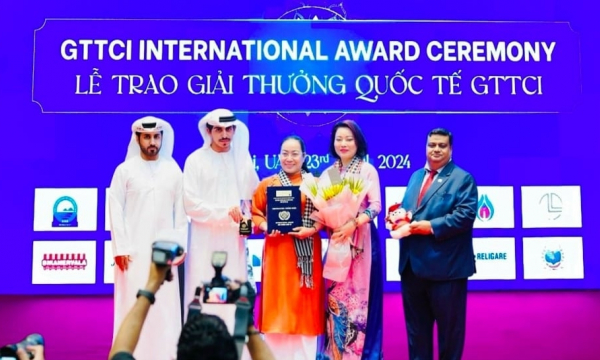
(VAN) The Global Science & Economic Exchange Forum Dubai took place on 23 April in Dubai. The GTTCI VN coordinated this momentous occasion, which included a wide range of international awards.
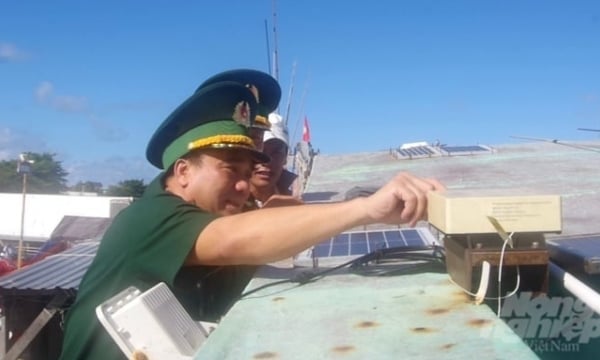
(VAN) On April 28, the Border Guard Command of Ba Ria - Vung Tau province promoted local anti-IUU fishing efforts in anticipation of the April 30 - May 1 holiday.
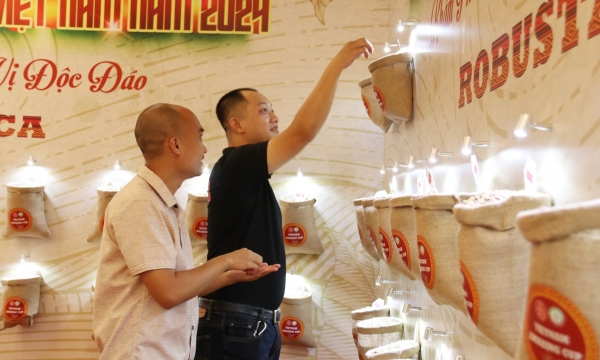
(VAN) The 2024 Vietnam Specialty Coffee Competition has chosen 129 samples that fulfill the requirement. Robusta coffee contributes for 83 samples, whereas arabica coffee accounts for 46.
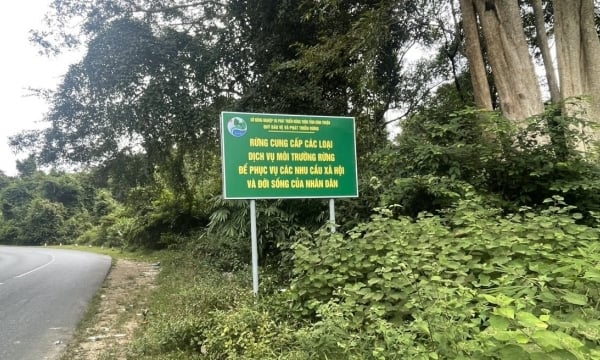
(VAN) The Binh Thuan Forest Protection and Development Fund is prepared to enhance surplus value of forests by entering the carbon market and providing forestry environmental services.
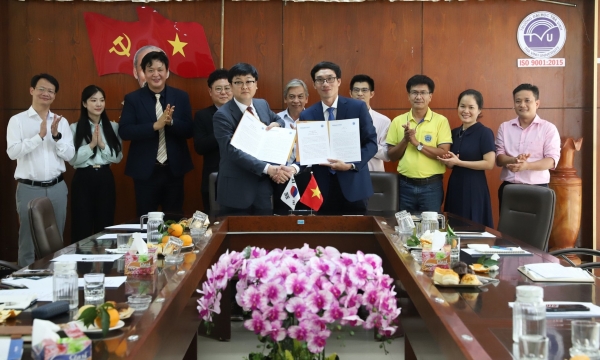
(VAN) On April 27, Tra Vinh University and Aquaworks Group from South Korea conducted an exchange and signed an agreement of scientific collaboration, focusing on research and develop advanced technologies for clean water.
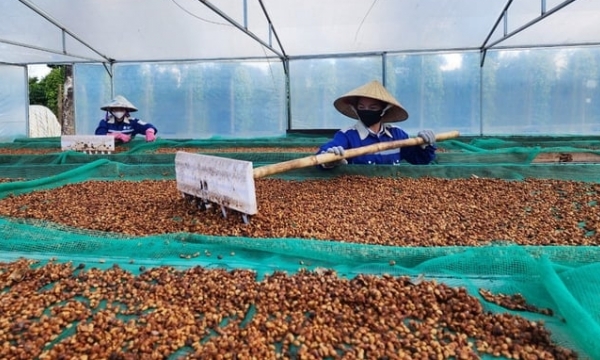
(VAN) Over 2 years (2022-2023), the total import-export turnover of the Central Highlands reached $ 4.6 billion, less than 1% of the import-export turnover.
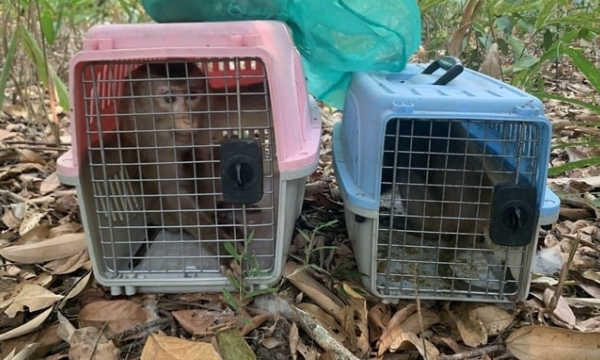
(VAN) After local residents voluntarily transfer them, the 3 pig-tailed macaques are cared for and in good health before being released back into the wild.